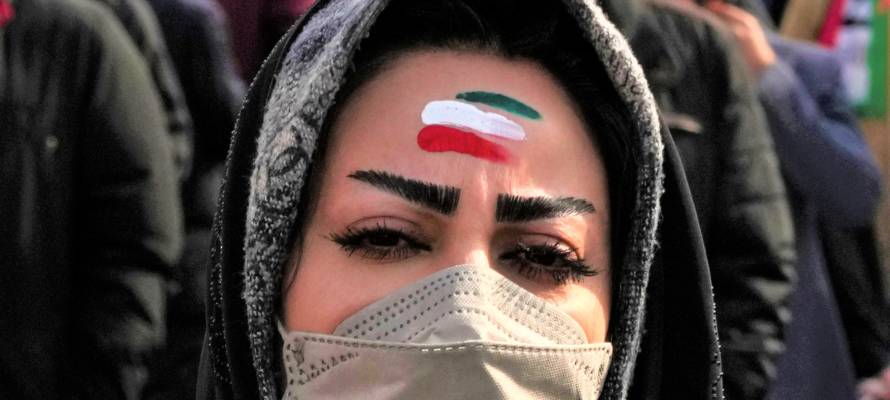Poland and Hungary both claim to be allies of the Jewish state, yet their envoys celebrated the anniversary of the “Iranian Revolution,” a regime that seeks Israel’s destruction.
By United with Israel Staff
Iran is celebrating the anniversary of the 1979 Islamic Revolution, which ushered in an ear of repressive authoritarian rule by the country’s brutal fundamentalist mullahs.
Among the regime’s top priorities is wiping the world’s only Jewish state off the map, a campaign Iran pursues mercilessly via its Islamic Revolutionary Guard Corps and other U.S.-designated terror groups across the region, including Hamas, Hezbollah, and Palestinian Islamic Jihad.
Despite Iran’s obsession with destroying Israel, two of the Jewish state’s so-called allies, Poland and Hungary, sent ambassadors to a state ceremony commemorating the 44th anniversary of Iran’s Islamic Revolution, defying the European Union’s (EU) “tacit agreement” to not publicly support the regime.
The EU is unofficially boycotting Tehran because of is vicious attacks on its own population to suppress anti-government protests launched after a Kurdish-Iranian woman, Mahsa Amini, died while in custody of the Iranian. Amini was arrested for not wearing the hijab properly. After her death, the Iranian authorities launched a murderous campaign to thwart the push for regime change by protesters.
As of January 2023, a U.S.-based human rights group said over 500 protesters had been killed, including 70 children.
In light of this brutal onslaught by the Iranian regime, Poland and Hungary sending ambassadors to celebrate the mullahs’ rule shocked some.
Executive director of UN Watch, Hillel Neuer, said it was a “shame” that Hungary and Poland supported the ceremony.
“Poland and Hungary broke ranks with other EU countries in Tehran and sent ambassadors to a formal reception with President Ebrahim Raisi to celebrate the 44th anniversary of the Iranian revolution,” tweeted Neuer.
According to Times of Israel, “Poland’s Maciej Fałkowski and Hungary’s Zoltán Varga-Haszonits could be seen in photos published by local media attending an official ceremony on Thursday, alongside Iranian President Ebrahim Raisi. In one picture, Fałkowski was snapped shaking hands with Raisi, and bowing slightly.”
“On top of the Hungarian ambassador’s attendance on Thursday, the Eastern European country’s foreign minister, Péter Szijjártó, sent a congratulatory message to his Iranian counterpart, Hossein Amir-Abdollahian, calling for the two countries to strengthen ties further,” added the Times report.
Hungary holds itself out as an “ally” of Israel according to a 2022 statement from the nation’s foreign minister, posted on its website, adding that “the country has zero tolerance for antisemitism.”
According to a statement on the website of the Israeli embassy in Poland, the two countries “enjoy very solid and profound relations, which include close cooperation in the political, military, economic, cultural and educational spheres.”
With that being said, the relationship has frayed during the past several years, as Poland attempts to criminalize statements that implicate it in the crimes of the Holocaust.
“On the eve of the German occupation of Poland in 1939, 3.3 million Jews lived [in Poland],” explains the Yad Vashem Holocaust Museum in Israel. “At the end of the war, approximately 380,000 Polish Jews remained alive, the rest having been murdered, mostly in the ghettos and the six death camps: Chelmo, Belzec, Sobibor, Treblinka, Majdanek and Auschwitz-Birkenau.”
